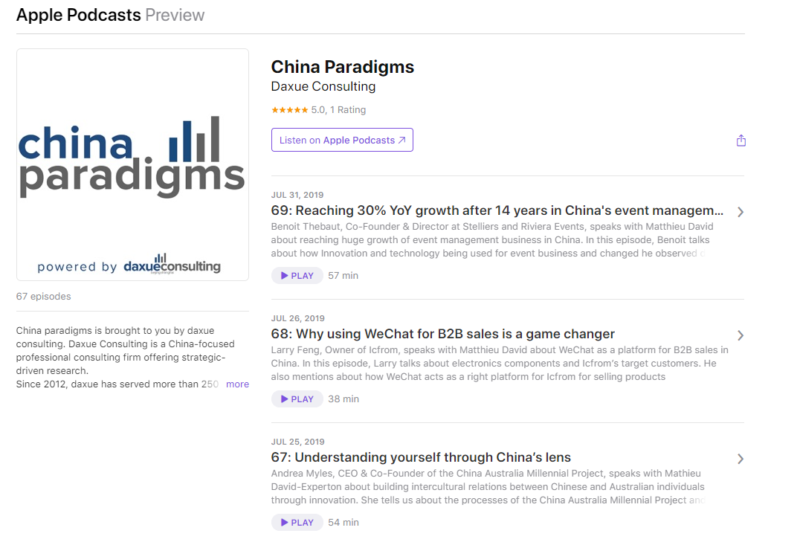On April 24th, 2019, Disney’s mega-blockbuster “Avengers: Endgame” was released in Chinese theaters two days before it did in the United States. The movie is the 22nd of the Marvel Universe franchise and the fourth of the Avengers blockbusters. In the Chinese movie market alone, the film became a box-office champion within two days. To date, Avengers has grossed more than $629 million in box-office in China, whereas globally it has grossed a record-breaking $2.79 billion.
Marvel’s success in China is outstanding, and perhaps it will not be the last foreign film company in China to make a fortune in the country. With hundreds of millions of cinema-goers and platform users, the Chinese market is the next frontier for international film companies.
“To writers, producers, directors, actors, and members of the film marketing and distribution chain: working with China is a part of your future.”
However, before doing business in the Chinese movie market, international movie studios should be aware of the specificities and potential constraints that they may have to reckon with in China’s film industry. As a matter of fact, every film company planning to enter the Chinese movie market should ask the following questions: How to enter the Chinese market? How would a foreign film find its way into China? What strategies firms could follow in China?
FOREIGN FILMS IN CHINA TO BOOST CINEMA REVENUE
Why enter China’s film industry?
“The importance of China as a movie market cannot be overstated”, said a senior analyst from Comscore, a US media analytics company.

China’s film industry is growing, as virtually all industries in China. The Chinese movie market used to be a small and overlooked market, but it has skyrocketed over the past five years to become the second largest market in the world. According to a PwC report, it is estimated that by the end of 2019 China’s film industry will be worth a whopping $11.05 billion , which is not far from the gargantuan $12.28 billion of the US counterpart; what is more, according to the same projections China’s film industry is poised to surpass the US film industry t by the end of 2020.
In China there can be very large and engaged audiences, that can shape the way in which studios and film companies craft their marketing strategies. With hundreds of millions of cinemagoers and platform user, foreign film companies as well as studios can secure a profitable share of China’s movie market .
The success of foreign blockbusters in the film industry in China
In 2018, three of Hollywood’s top five-grossing movies registered more than a quarter of their overseas box-office earnings in China, according to the Washington Post. Other films owe China even more of their success, like Steven Spielberg’s hit Ready Player One approaching 50 percent of its foreign total revenue in China.
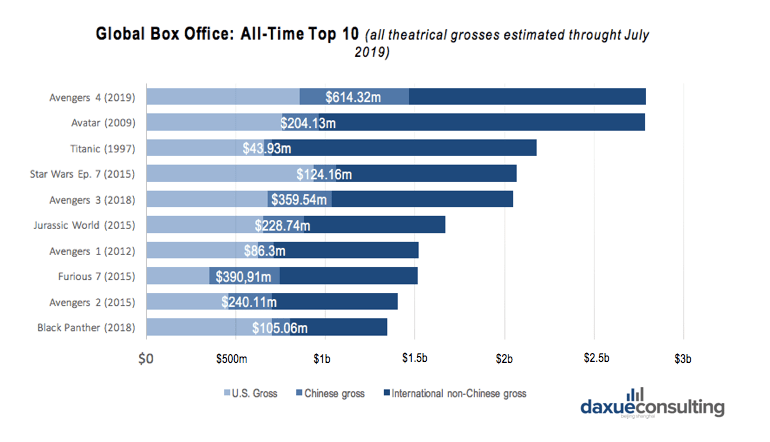
The film industry in China is now the place where foreign blockbusters make fortune. The reason behind the success of the Marvel films is that they entered the Chinese movie market at a time when there were fewer Hollywood films. Thanks to constant releases, the studio managed to create a strong and stable brand presence over the last decade. As we see in the graph, films like the Star Wars series never got the same traction. In fact, since the first films were not released in China, the franchise did not succeed in creating the following which has characterized Marvel movie.

INTERNATIONAL FILM COMPANIES: WHAT STRATEGY TO LEAD IN CHINA
Importing films in China: following Disney’s model
Foreign films in China have little control over film distribution and exhibitions due to the government’s regulations and cultural policies on the film industry. Foreign distributors and producers need, therefore, to partner with domestic companies in order to access China’s film industry.
One of the main strategies followed by mostHollywood’s studios to boost their revenuesharing movies is the following: importing films in China. Disney and its Marvel franchise have managed to strategically secure niches in the film industry in China.
In China, foreign film companies need to have a good relationship with the government andlocal Chinese film companies to boost the success of their movies. In fact, the government only grants small number of slots for distribution to foreign films in China. More precisely, in 2018 the quota was fixed at 38 foreign films, and 35 the year before, which represents a slight increase in the past few years.
Is adapting films to the Chinese audience a good strategy?
As films are cultural products, the import strategy poses the challenge of the cultural and ideological differences between the Western and Chinese audiences. Studios look for making movies “transnational” enough to appeal to the Chinese audience. For example, some Hollywood studios did well for some movies adapted from Chinese legends, like Mulan or Kung Fu Panda.

However, the Chinese audience is often attracted by what is different from local context . With the exception of small roles for Chinese actors Fan Bingbing and Wang Xueqi in a special version of Iron Man 3, which caused criticism on Chinese social media, the Marvel series is especially appreciated because it has managed to avoid adding superfluous Chinese characters or elements.. The Iron Man 3 released in China also had a blatant use of advertisement from Chinese brands that did not please the audience.

Co-production of movies in China is a win-win strategy
Co-productions are a way for Chinese films to address a global audience and for foreign producers to gain access to China. The Co-production of movies in China can create win-win outcomes: co-produced films have the “Made in China” label and receive the same treatment as domestic films, which enjoy better distribution, revenue sharing percentage and policies than imported films.
There are strict policies which regulate whether a movie will be recognized by Chinese regulators as a co-production. For this reason, negotiating the sharing of the movie’s box-office earning in China is always a challenge. For instance, some studios have found that the potential benefits are not worth the investments necessary to enter the Chinese film industry. That is why, co-producing movies in China is not popular among Hollywood studios, which are allowed to retain 25 percent of all domestic revenues compared to 50 percent in other nations.
Co-productions in China are mostly targeted at the Chinese market, with main scenes shot in China. More precisely, the following are some of the different ways of co-producing a movie in China: the company participates only in the creative process, the company establishes a joint production of the film (same investment and same share of the profit), the company produces by assistance (the foreign company is only responsible for the financing of the film) and production by commissions (the company commissions the whole production of the film).
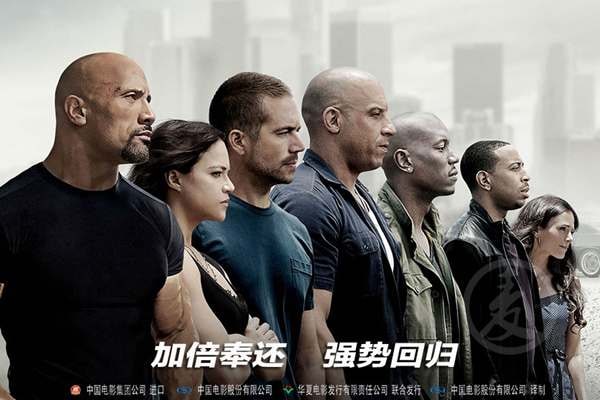
Investing in China’s film industry
In addition to the regulated imports, foreign companies can also enter the film industry in China through joint ventures by buying minority shares of Chinese film companies—foreign firms cannot own 49 percent of a Chinese company.
Another possible way to invest directly in China’s film industry is through theater development and cinema ownership, which are also relegated to grant minority stakes to foreign investors.
How to strategically promote in the Chinese movie market
It is also important to consider the place of the digital strategy when entering the Chinese movie market. Using social media is a crucial approach in a country with more than 900 million active Internet users. Promotional campaigns in social platforms like Wechat are a way to increasing foreign firms’ visibility in the Chinese market and purchasing movie tickets using the app.
Using Chinese social media to promote films
Awareness is one of the most important factors inconsumers. In China forums are used to promote brands or interact with individuals, which is something less common in Western countries. As a heritage of the collectivism in Chinese society, people trust in the recommendations of their peers.
The success of Marvel’sAvengers series has been boosted by its astute promotion, making each release a trendy event. Film critic Yu Yaqin said that “once it’s a trend, people are willing to chase after it whether they personally like it or not”.

Some of the most influential Chinese social media dedicated to the film industry are Maoyan and Douban. As an example, Avengers Endgame received overwhelming support, with a 9.3 aggregate score on Maoyan and an 9.1 on Douban, beating out previous Marvel films’ scores.

Youku is another important Chinese social platform interesting for promoting films. Therefore, being present on different video platforms in China will allow to gain visibility and better marketize the film.
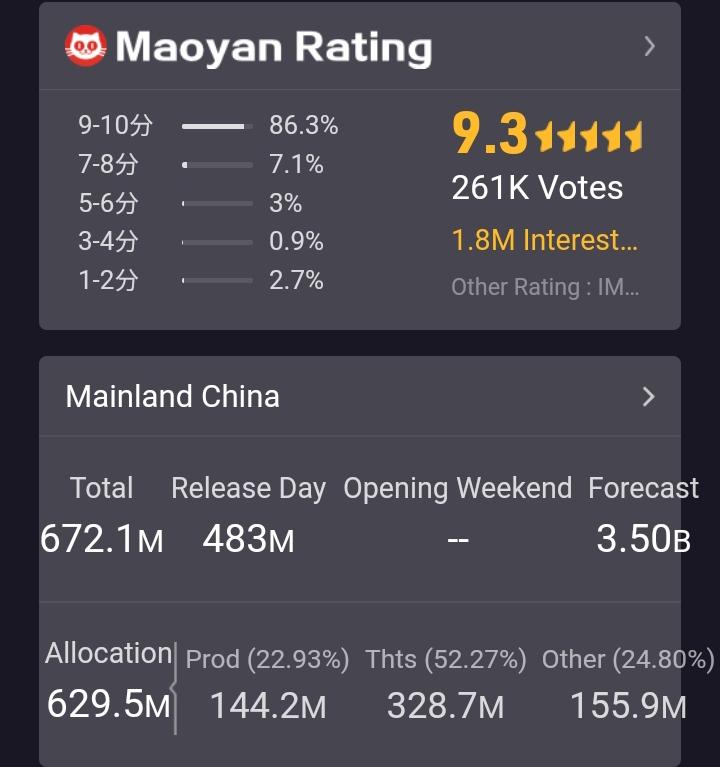
Film Festivals in China
Expanding the presence in film festivals is also a way to reach the audience . Forc instance, Shanghai International Film Festival and Beijing International Film Festival are very prestigious events that make films gain in reputation. Foreign film companies in China need to work on their relationship with the Chinese film distribution and exhibition partners to ensure their movies will be well promoted.

THE CHINESE FILM INDUSTRY: CONSTRAINTS AND OPPORTUNITIES
Facing censorship, strict import rules and blacklists
Movies that do not pass the censorship regulations cannot be distributed or screened in China. Foreign film companies in China need to submit their movies for import review to the Propaganda Department of the Communist Party’s Central Committee—the new government agency which controls foreign films imports since March 2018. This new agency appears to be more strict on foreign films .
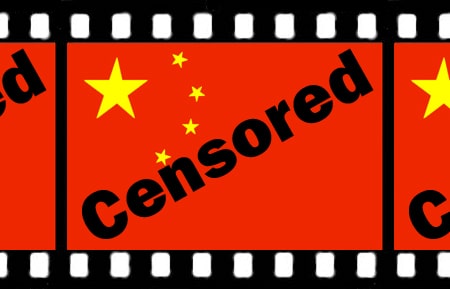
Import rules are also a limiting factor for earnings of foreign movies in China’s annual total box office. Foreign film studios in China have right to a share of 25 percent on the gross box-office of their films . The Imposition of the quota is one of the governments strategies to protect its domestic film industry and local cinema market, to make sure that sales for domestic films remain strong and do not get overshadowed by foreign, particularly from Hollywood, imports.
Protectionism from the government is also seen in co-productions of films in China. U.S. film producers working in China and releasing movies in Chinelanguage are often required to reduce their PR presence in the films
In addition, the trade war between China and the U.S. has made relationships between Chinese and Hollywood movie companies more complicated, which resulted in the suspension of numerous projects. The only U.S. company that does not suffer the current tensions is Disney. In fact, the studio has managed the relationship with Chinese distributors well, partly because of the business partnership where the government of Shanghai is the main stakeholder of Shanghai Disney.
Know the mayor players in the Chinese film industry
Chinese film industry leaders are also using the blockbuster model for Chinese cinema, posing a long-term competition for Hollywood and foreign film studios. Chinese filmmakers have presented a few successful “Made in China” blockbusters that reach the level of Hollywood’s gross earnings in the box-office. The sci-fi epic “The Wandering Earth” was launched in 2019, during Chinese New Year, by China Film Group, and was China’s second-highest domestic gross-earning movie ever, reaching $691 million in China alone.

The film industry in China is dominated by a small number of players and they are the ones who finance, produce, and distribute movies in Mainland China. The following table lists some of the most prominent film groups in China.
 | China Film Group (CFG) | The largest state-owned film studio in China, developer and distributor of films One of the only two authorized importer of foreign films in China. Sole manager of all Sino-foreign co-productions (the Karate Kid remake co-production) Produces more than 30 feature-length films, 400 TV plays and100 telefilms. |
 | Shanghai Film Group(SFG) | State-owned enterprise, an entertainment conglomerate Owns the largest cinema circuit in China Produces 20 feature films, 50 TV films, and 800 episodes of TV series per year. |
 | Huaxia Film Distribution & Co: (hxfilm) | One of the only two authorized importersof foreign films in China (Harry Potter, Transformers) Invests in overseas promotionof Chinese films that are distributed internationally. Is in a Joint venture with Relativity Media for co-production of projects appealing to both Western and Chinese audiences. |
 | Huayi Brothers Media Group (HBpictures) | Production, distribution, talent management and advertising First film company listed in Chinese stock market Joint Venture with Hollywood productioncompany Legendary Entertainment (the Inception movie) |
 | Bona Film Group | Privately-owned film company, involved in co-production and distribution of films from China and Hon Kong (The Warlords, Flashpoint) International film sales, cinema investment and management, film advertising and talentmanagement It is one of China’s largest share-holding film distribution companies. |
The era of big-data: a revival for the film industry in China
The use of big data and Internet impacts the film industry and Internet giants in China, which are investing heavily in China’s film industry. With Tencent Pictures, iQiYi Films, and Baidu Pictures, the Chinese technology conglomerates are all stepping up their stakes the movie business. Some of them are also co-producing films with foreign studios, like Tencent Pictures and Columbia Pictures in the film “Men in Black International”, which was released in 2019..
According to Tencent’s vice president, part of the company’s strategy will be to use its expertise involving big data, such as the profiles of movie viewers to understand the behavior of the latter. This information will be used to predict preferences . The company also plans to use data gathered from social media platforms to make strategic decisions. Algorithms within these platforms track patterns based on user feedback from posts and comments—insight on Chinese consumers that can also be used for marketing and distribution purposes .

The Chinese film industry is large, regulated, and hopeful
In a nutshell, China’s film industry is one of the many examples for the opportunities and that exist in China. However, foreign companies still need to reckon with many challenges when they venture in the Chinese business world. Measuring the size and diversity of the country, understanding the workingsof the Chinese environment and the speed at which markets can transform, is imperative before entering the Chinese market, regardless of the industry the companiese are operating in.
Despite the regulations and the geopolitical crosswinds that shape market strategies , China’s film industry is booming and its of moviegoers as well as Internet users are avid for entertainment.
Author: Ines Beneyto Brunet
Let China Paradigm have a positive economic impact on your business!
Listen to China Paradigm in iTunes
